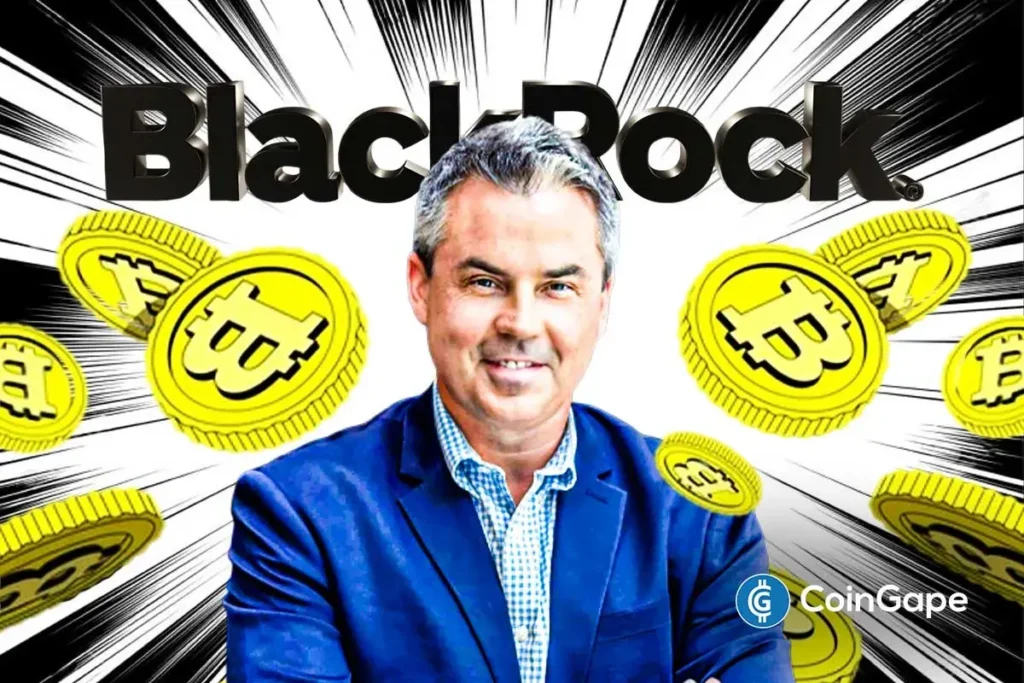BlackRock’s Bullish Position in Bitcoin: Analyzing the Impacts of iShares Bitcoin Trust ETF
The financial landscape is witnessing significant shifts as BlackRock, the world’s largest asset manager, secures a staggering 3.8% of the total Bitcoin supply through its iShares Bitcoin Trust ETF (IBIT). This development has raised eyebrows in financial circles, with Bloomberg analyst Eric Balchunas characterizing it as "wild." The unprecedented growth of IBIT, which is remarkably new compared to traditional equity ETFs, has set a new precedent in both the cryptocurrency and asset management realms.
BlackRock’s Breakthrough in Bitcoin Investments
The iShares Bitcoin Trust ETF, launched just last year, manages $87.7 billion in net assets, showcasing its rapid ascent. Balchunas notes that for an equity ETF to match this level of ownership in its underlying asset class, it would require an astounding $2.2 trillion in assets. To put things in perspective, the SPDR S&P 500 ETF (SPY)—a 32-year-old fund—owns only 1.1% of the stocks in its index. Given that IBIT is still in its early stages, its market influence is nothing short of remarkable.
This large stake in Bitcoin signifies not only BlackRock’s confidence in the cryptocurrency’s long-term viability but also the reconfiguration of traditional finance and investment strategies. The asset manager’s foray into digital currencies illustrates a paradigm shift in how established financial institutions are beginning to embrace decentralized assets. IBIT’s robust performance exemplifies a growing acceptance of cryptocurrencies as viable investment vehicles.
The Growing Demand for Bitcoin ETFs
The recent statistics on Bitcoin ETFs are overwhelming; they attracted $7.8 billion in the third quarter alone, pushing the year-to-date inflows to $21.5 billion. This brings the total net inflows since the inception of these products to a jaw-dropping $57 billion. However, some market commentators express dissatisfaction, asserting that expectations of meteoric growth should be tempered by the realities of market fluctuations. Despite these concerns, it’s clear that the Bitcoin ETF sector has maintained a strong upward trajectory, demonstrating solid investor interest.
Balchunas emphasizes that while growth may resemble a stair-step pattern—moving forward and then taking steps back—it ultimately indicates an evolving market landscape. The performance of Bitcoin ETFs has played a critical role in reinforcing the cryptocurrency’s appeal, underscoring that institutional interest and investment are crucial for sustainable growth in this sector.
BlackRock vs. Satoshi Nakamoto: The Race for Bitcoin Supremacy
In an intriguing twist, BlackRock’s asset management has positioned it as the second-largest holder of Bitcoin globally, ranking just behind its enigmatic creator, Satoshi Nakamoto, who is estimated to control 1.12 million Bitcoins. Currently, BlackRock holds 768,264 BTC, which places it at a pivotal juncture in the race for cryptocurrency supremacy. Analysts believe that should IBIT continue to attract net inflows at an unprecedented rate, it could surpass Satoshi’s holdings by next summer.
The prospect of BlackRock overtaking Nakamoto—a figure deeply embedded in Bitcoin lore—could further legitimize the asset’s standing in the financial world. If predictions hold true and Bitcoin prices surge to $150,000, we may witness an investment frenzy, potentially driving BlackRock’s holdings to new heights.
Vanguard’s Potential Move into Crypto ETFs
Meanwhile, the second-largest asset manager, Vanguard, is reportedly contemplating the introduction of crypto ETFs due to increasing demand from its client base. This move could provide a significant boost for products like BlackRock’s IBIT, thus shaping the competitive landscape of cryptocurrency investments. Given Vanguard’s expansive reach within the investment community, its entry into this niche market could catalyze further inflows into Bitcoin and its ETFs, benefiting both novice and seasoned investors alike.
The synergy between these leading asset managers could lead to an unprecedented level of validation for cryptocurrencies. As mainstream financial institutions warm to Bitcoin and other digital assets, it could set the stage for broader adoption across various demographics.
The Implications of Institutional Investment in Cryptocurrency
The growing institutional interest in Bitcoin and cryptocurrencies, highlighted by BlackRock’s strategic moves, carries profound implications for the market. Such investments signal a transition from speculative trading to a more established financial framework, giving retail investors increased confidence in digital assets. With established players like BlackRock and Vanguard entering the fray, the perception of cryptocurrency as a legitimate asset class is being fundamentally reshaped.
Importantly, the market is witnessing an influx of liquidity, leading to more stability and transparency. As ETFs become a primary means for trading cryptocurrencies, this could enhance regulatory oversight and foster broader acceptance of digital currencies.
Conclusion: A New Era for Bitcoin
In conclusion, BlackRock’s ownership of 3.8% of the total Bitcoin supply through its iShares Bitcoin Trust ETF signifies a watershed moment for both cryptocurrency and traditional finance. With significant net inflows, institutional validation, and an evolving investment landscape, it is evident that Bitcoin is not merely a passing trend but is transitioning into an accepted asset class. As we look forward to the future, the potential for further growth in this sector remains bullish, especially with predictions surrounding BlackRock’s increasing dominance and the potential entry of competitors like Vanguard into the market.
As the world’s largest asset manager continues to fuel Bitcoin’s growth narrative, the path forward will likely be characterized by innovation, increased acceptance, and an ongoing evolution in how investors engage with cryptocurrencies. This dynamic shift represents both exciting opportunities and critical challenges within the financial ecosystem—a story still in its early chapters but one that promises considerable advancements as the industry matures.


